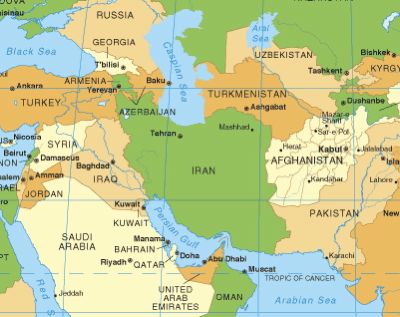 Tehran, May 14, IRNA - Since the Government of Hope and Prudence took office, Iran has witnessed a sea change in its domestic and foreign policies.
Tehran, May 14, IRNA - Since the Government of Hope and Prudence took office, Iran has witnessed a sea change in its domestic and foreign policies.
President Hassan Rouhani has announced on many occasions the priority accorded to close ties with neighbors, said the editorial in the English-language newspaper ?Iran Daily? published Wednesday.
The president?s gestures have been also welcomed by many regional countries, including Pakistan and Saudi Arabia, the paper noted.
Pakistan is a brotherly neighbor of Iran and despite all ups and downs in bilateral relations, specifically during the rule of Taliban in Afghanistan, both countries have maintained close ties.
There are many reasons for the eagerness of Tehran and Islamabad to preserve these close ties, the editorial believed, adding that some reasons were mentioned by the Leader of Islamic Revolution Ayatollah Seyyed Ali Khamenei when Pakistani Prime Minister Nawaz Sharif visited him recently.
Pakistan considers Iran as its strategic ally and this alliance is a time-tested one. Change of governments in both countries has not undermined the urgency of reinforcing their traditionally strong ties.
The victory of the Muslim League, headed by Nawaz Sahrif, has had positive impacts not only on bilateral ties, but also on cooperation among Iran, Pakistan and Saudi Arabia.
Sharif’s ties with Saudi Arabia and Iran are very close. Hence, so long as he is at the helm of power in Islamabad, the prospects of trilateral cooperation are expected to brighten, the daily said.
In a break from the past, a wave of change has emerged in Riyadh’s policy towards Tehran. The removal of Bandar bin Sultan, the spy chief of Saudi Arabia, was a positive signal to Tehran, it said.
This has been strengthened by the invitation of Saudi Foreign Minister Saud al-Faisal bin Abdulaziz to his Iranian counterpart, Mohammad Javad Zarif, to visit his country.
The three countries have many common problems to resolve and several platforms to pursue for the sake of regional peace, security and development.
Today, religious extremism is an evil that has claimed many victims in Iran and Pakistan. Extremists, who are supported by foreign forces, don’t spare anybody.
They target innocent nationals, but without any doubt, tomorrow they will turn their guns against their mentors, the paper said.
Unfortunately, some of these extremists have found a safe haven near Iran’s border with Pakistan. Fortunately, the Pakistani prime minister, during his meeting with the Iranian Leader, said his country would do its best to fight this menace.
At a time when our region is bleeding and the extremists are killing innocent people in Afghanistan, Pakistan, Iran, Iraq and Syria, a meaningful cooperation among Tehran, Islamabad and Riyadh can play a key role in reining in extremism.
In the next step, endeavors must be made to boost regional collaboration to form a regional Axis of Peace. Nawaz Sharif has announced his readiness to boost economic ties with Tehran. He also spoke of reviving the peace pipeline project.
The economic impetus can later be transformed to trilateral and multilateral cooperation to serve the peoples of the region who are sick of extremism and violence.
By IRNA
The Iran Project is not responsible for the content of quoted articles.

 QR code
QR code